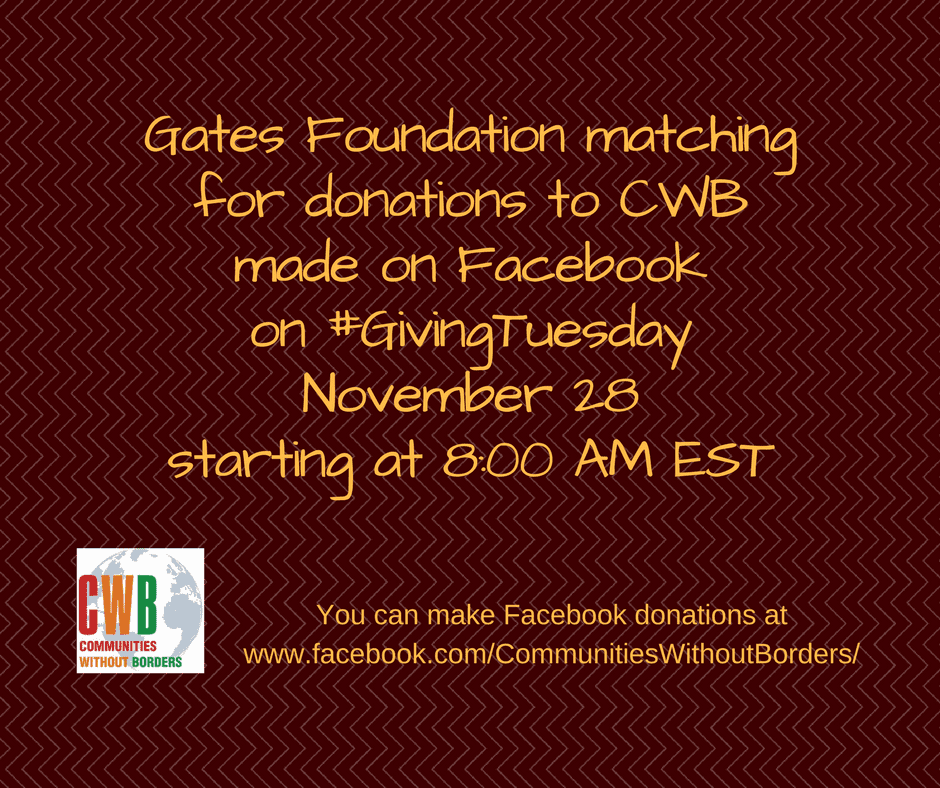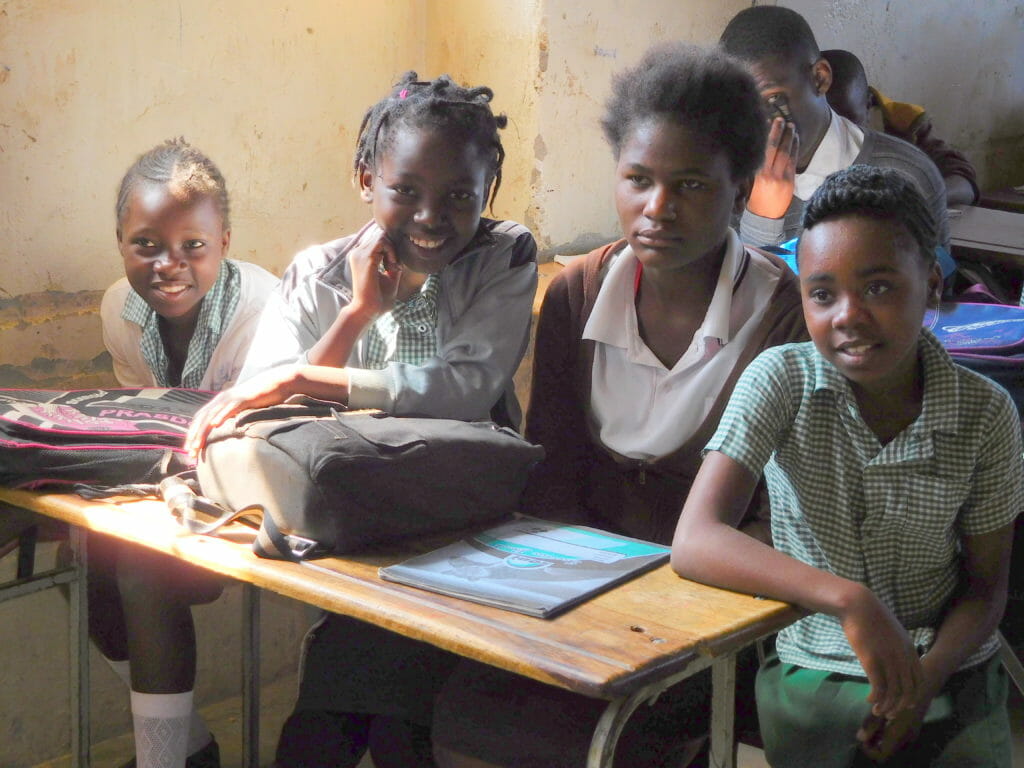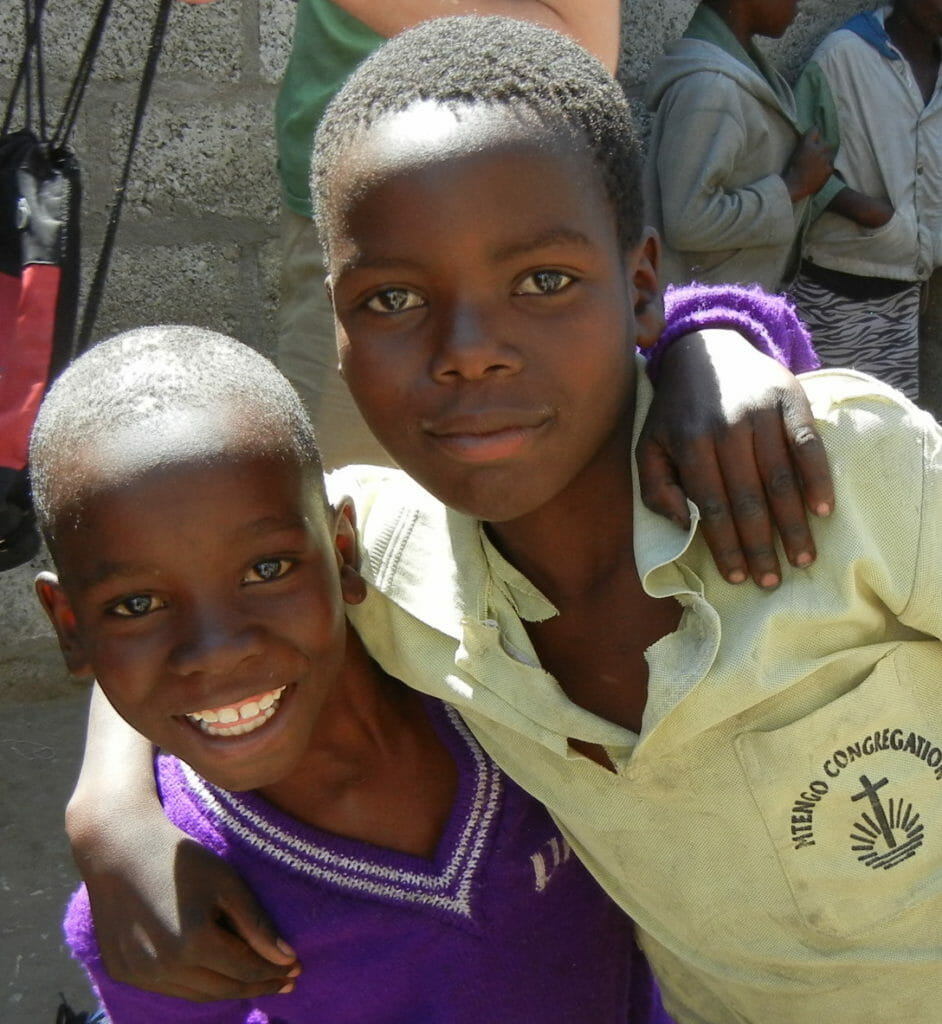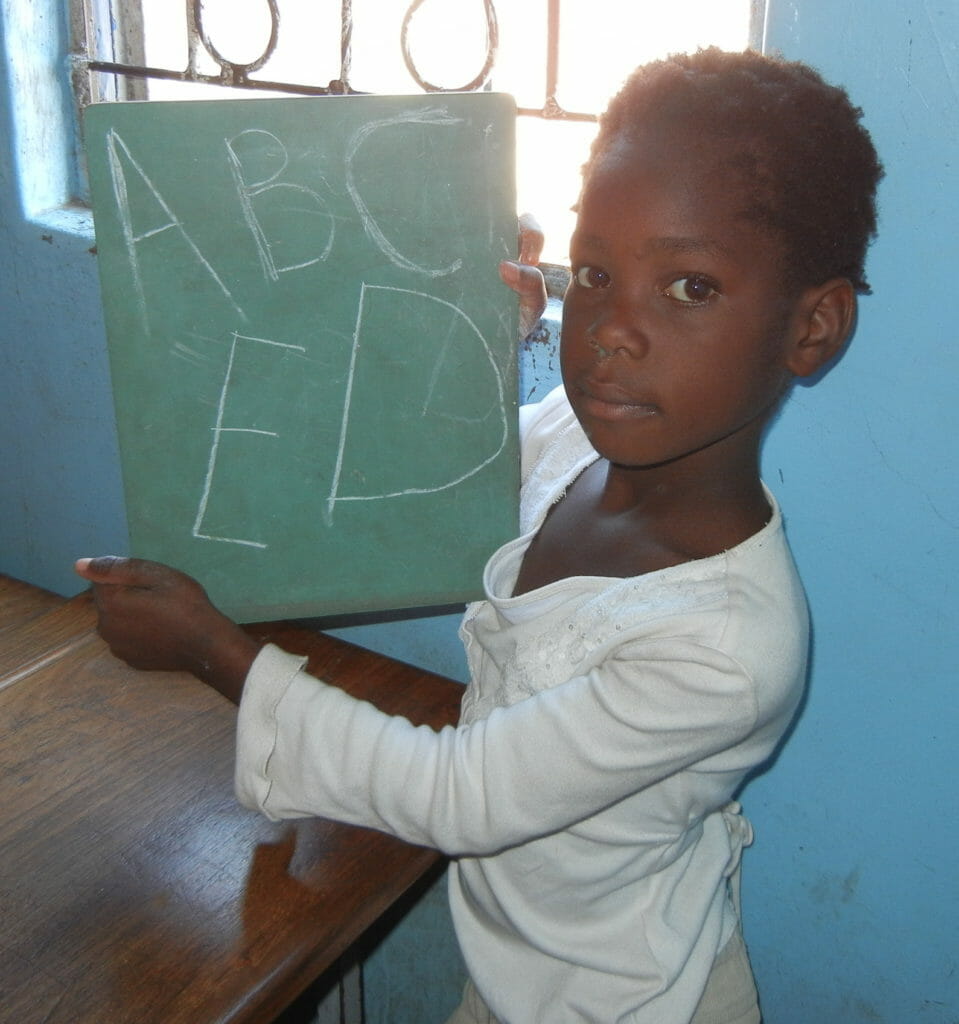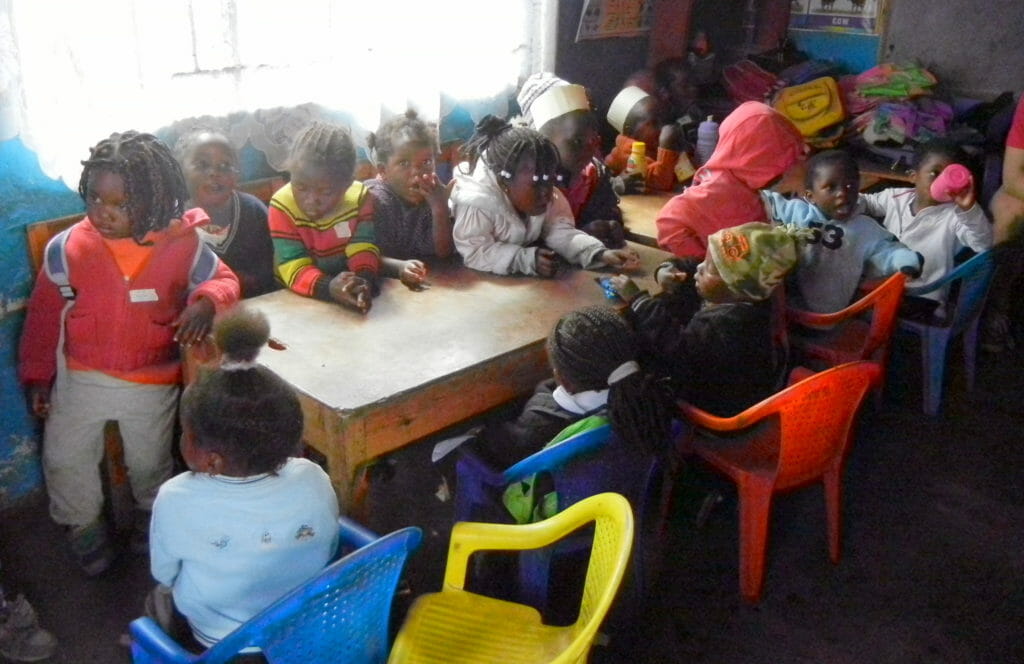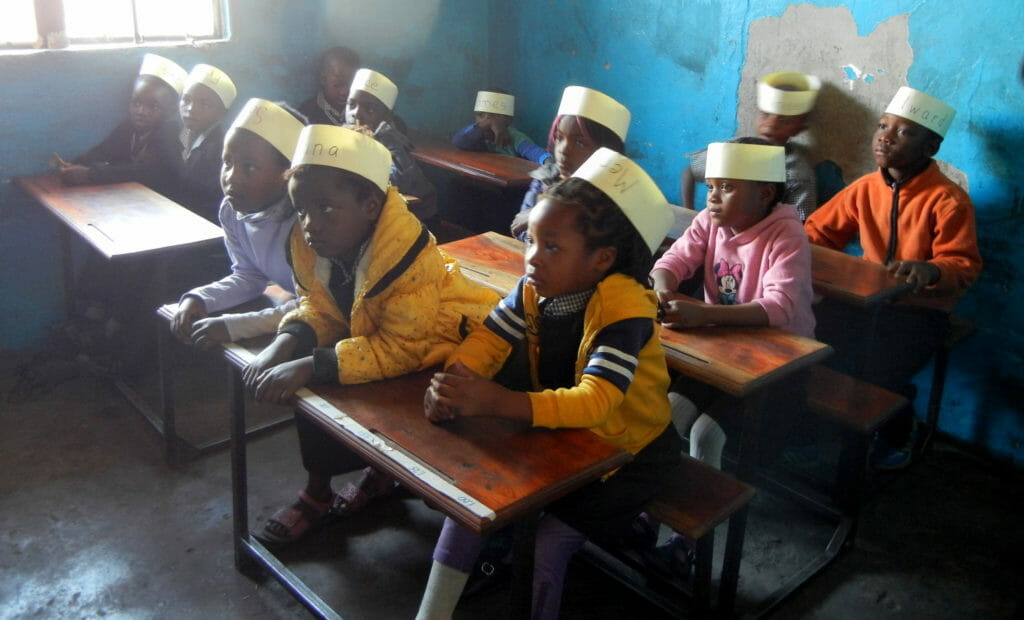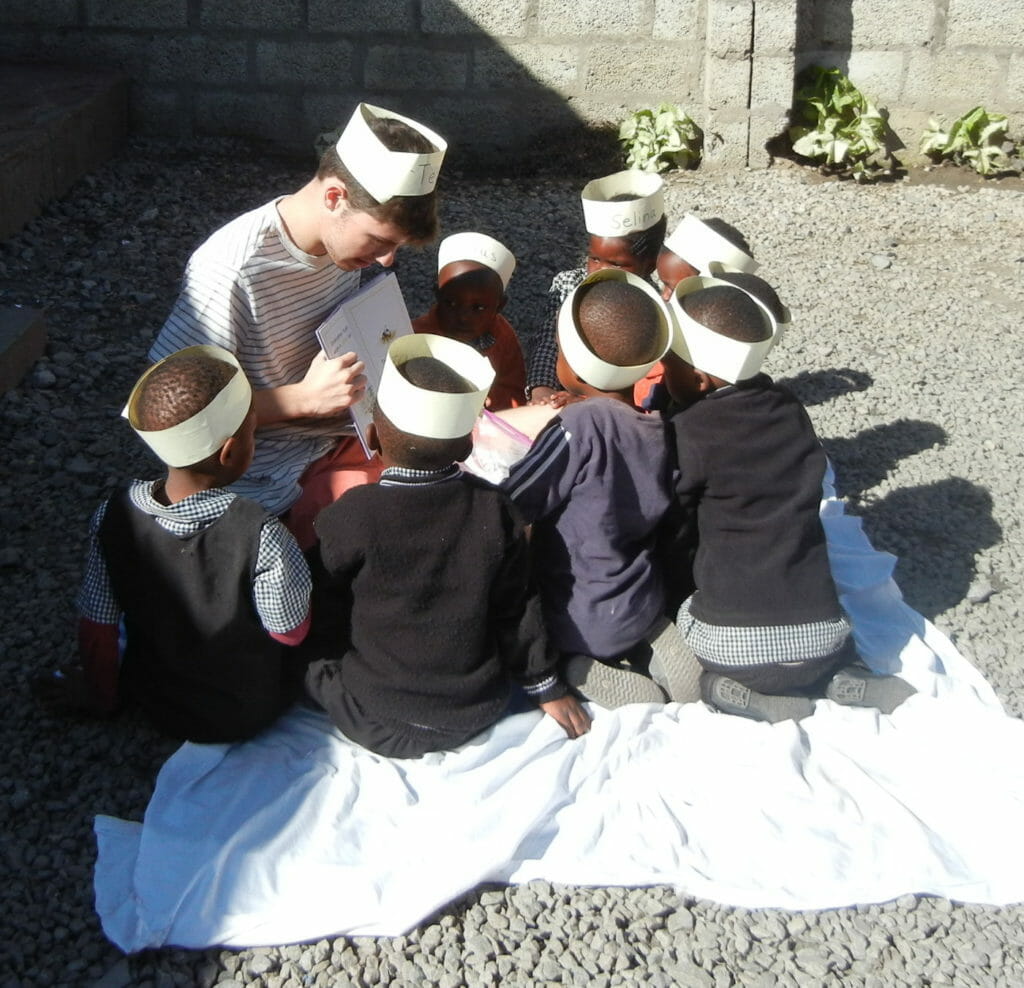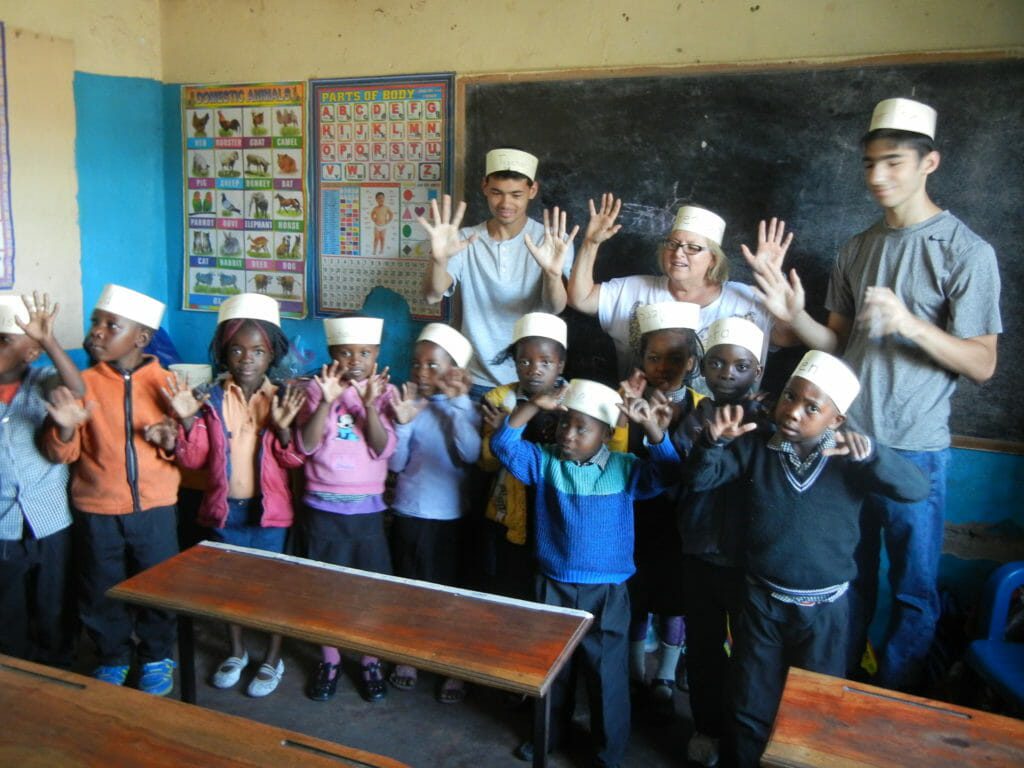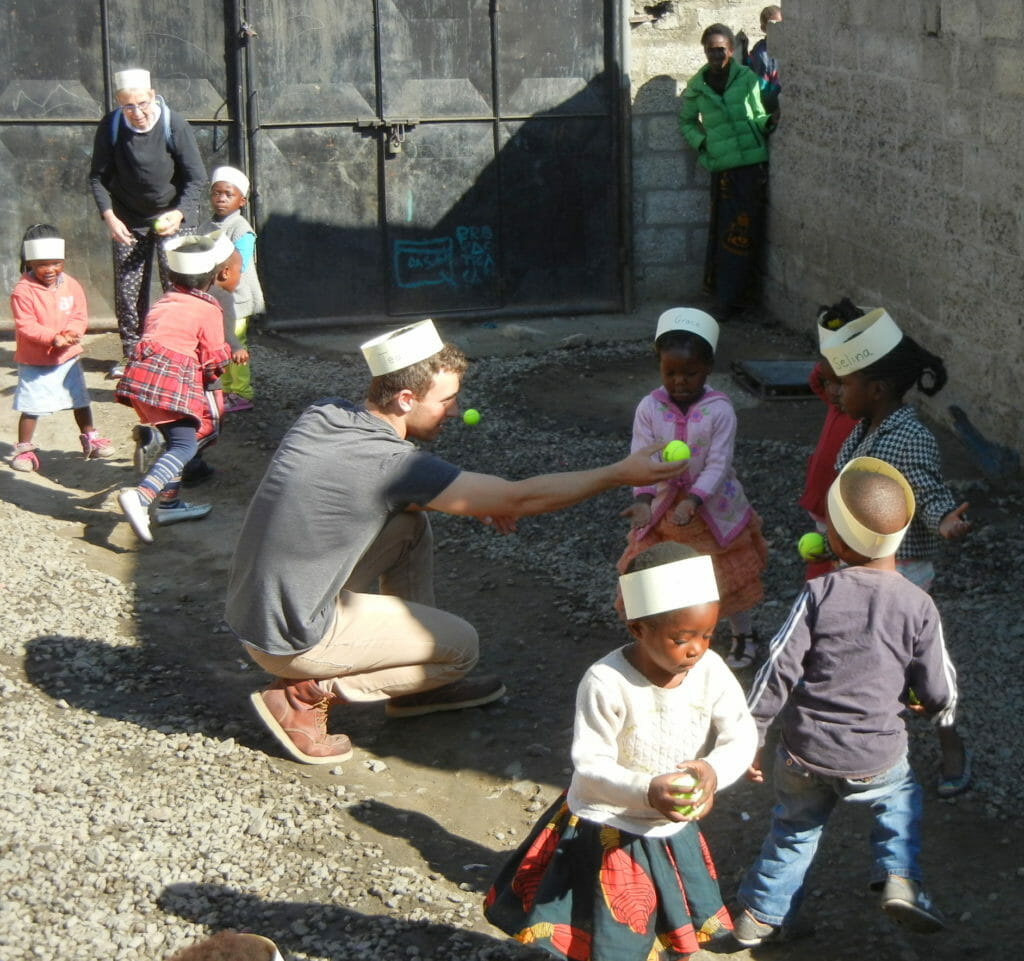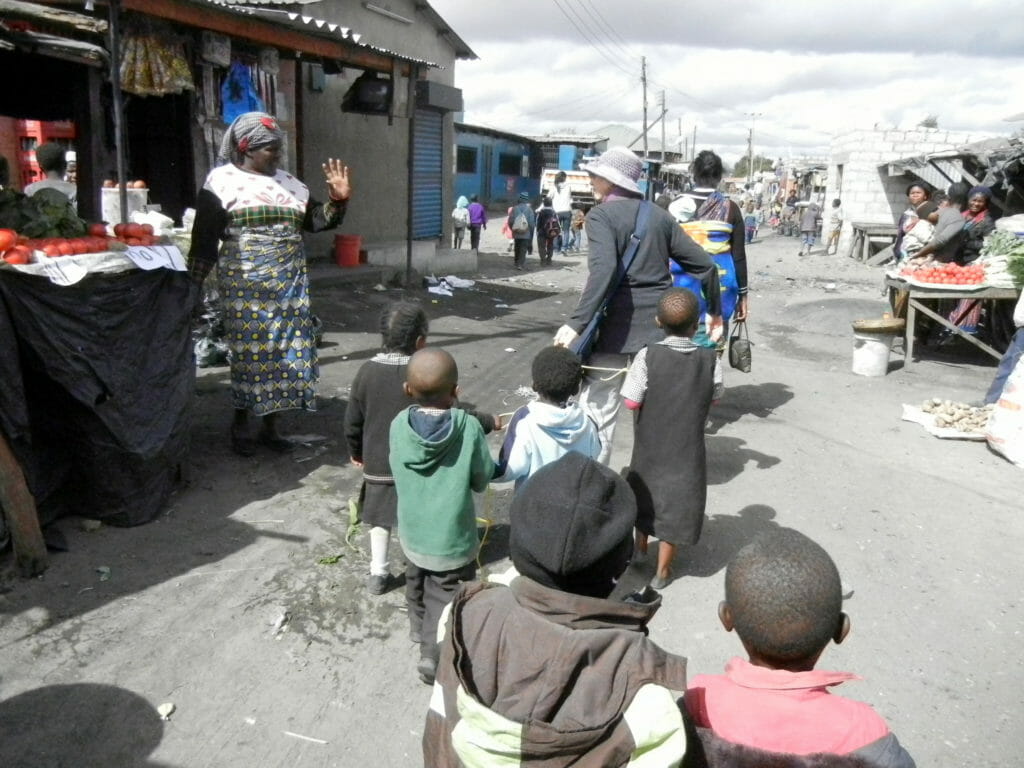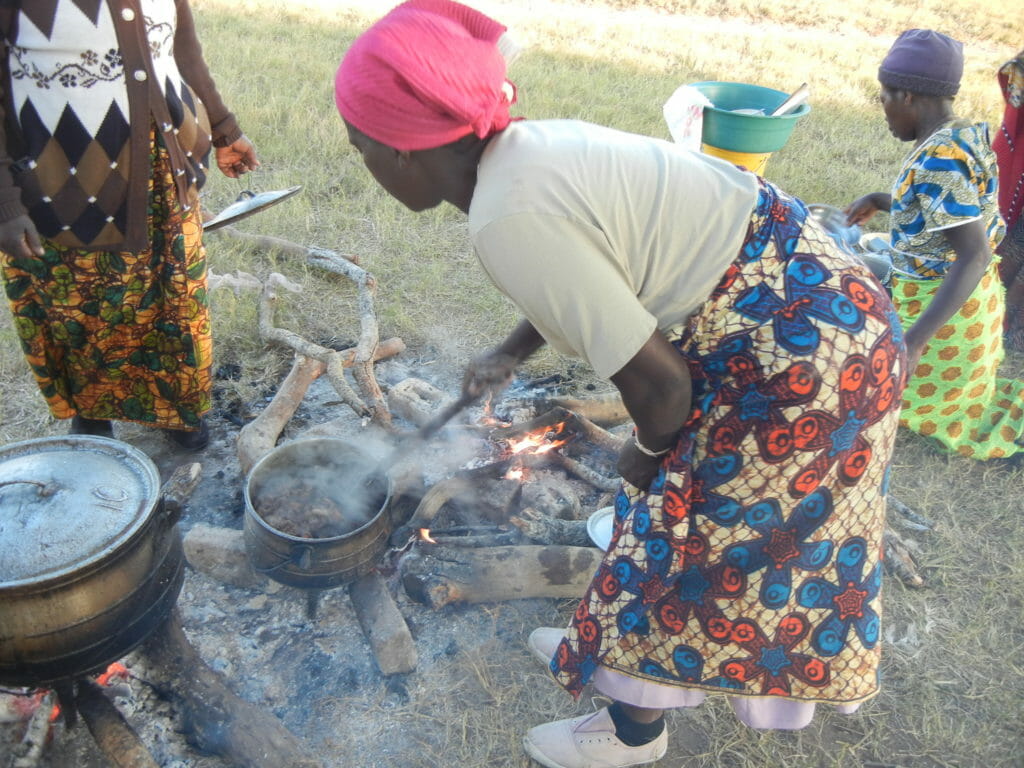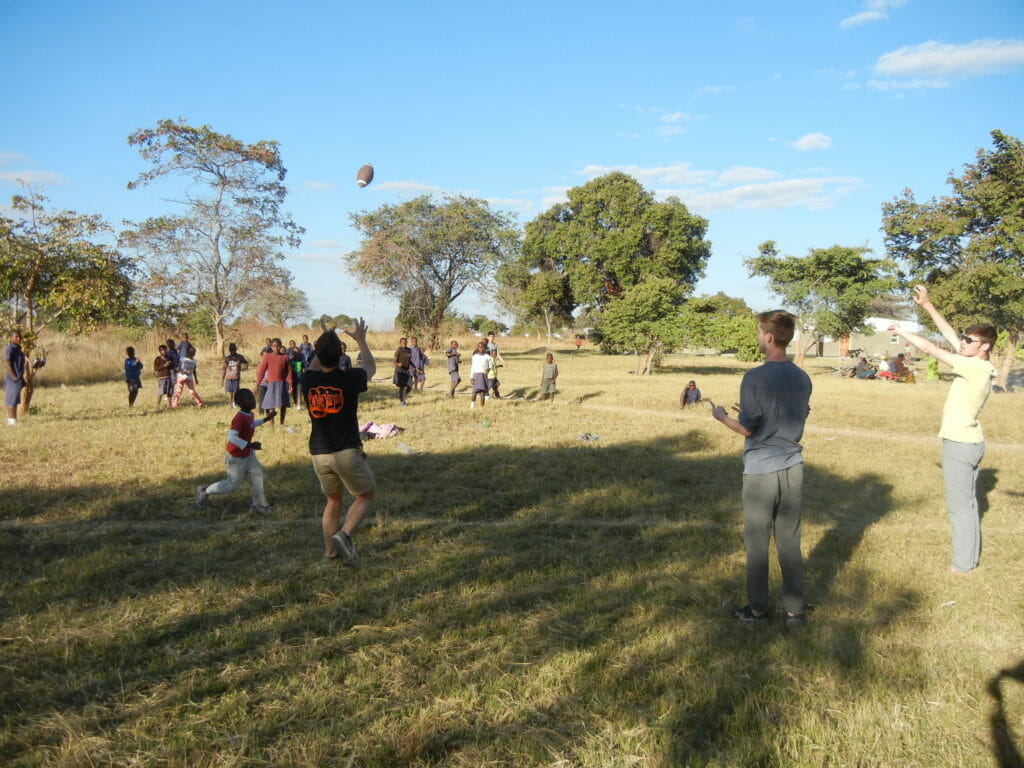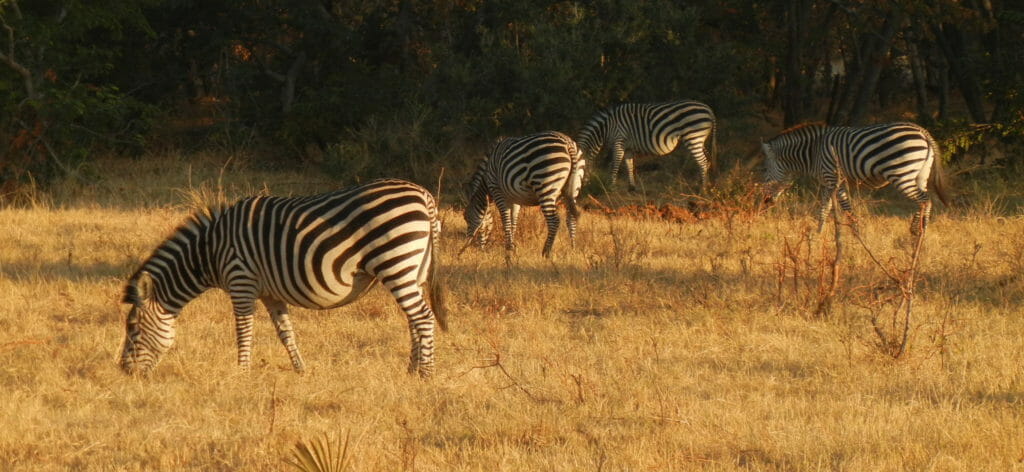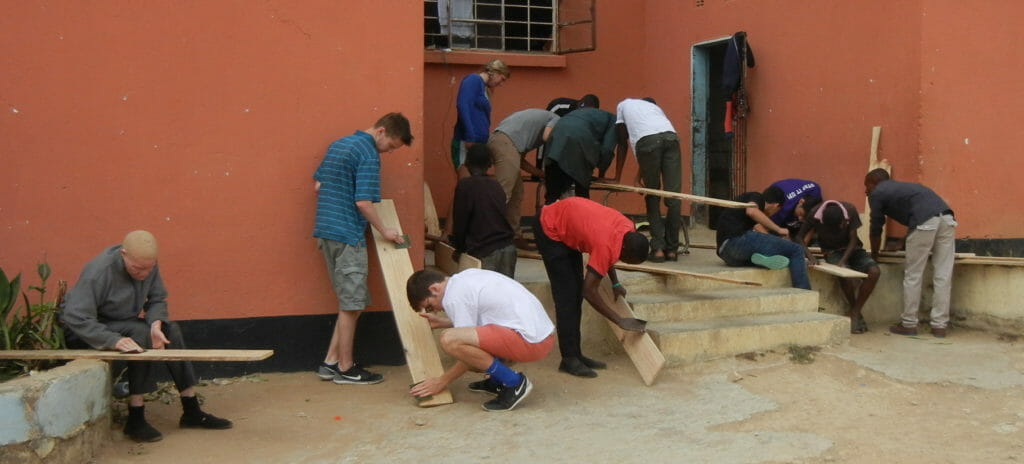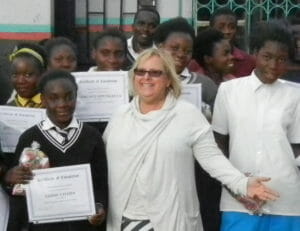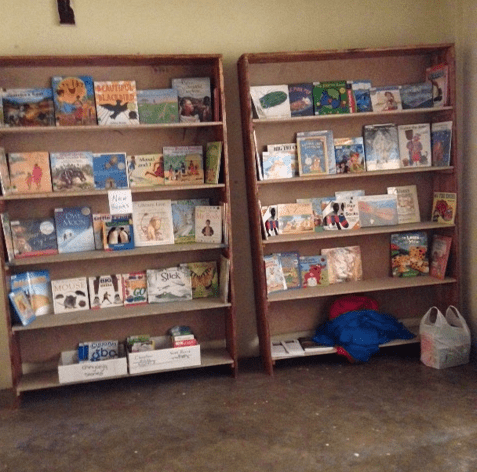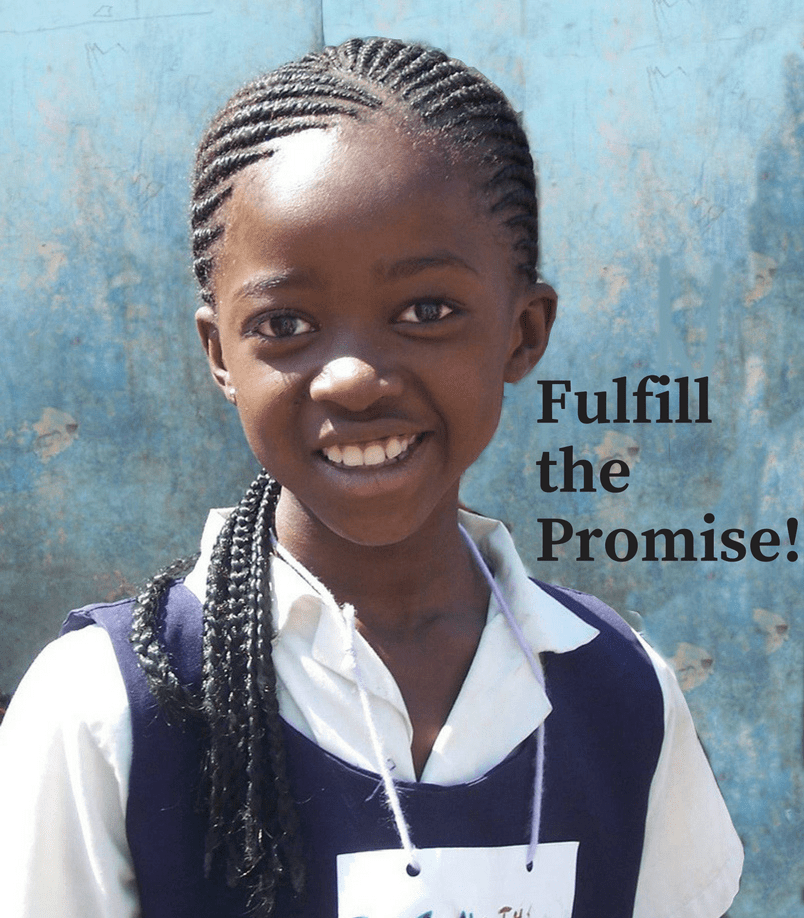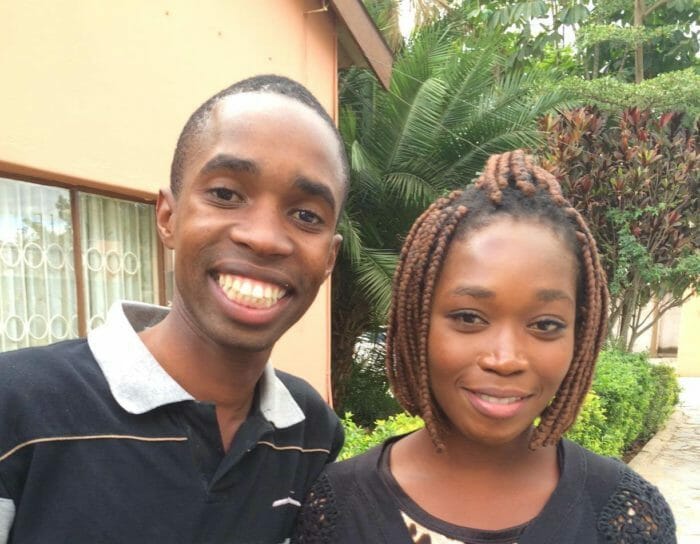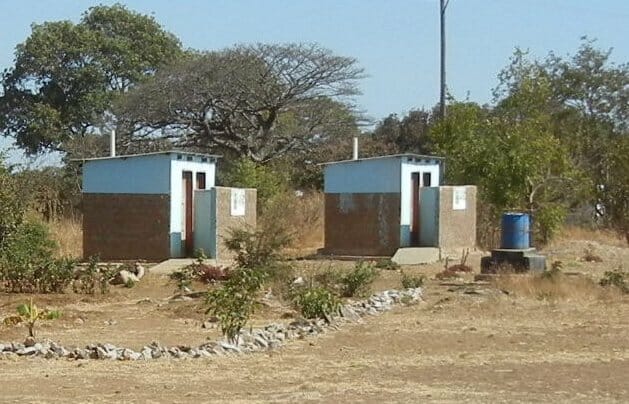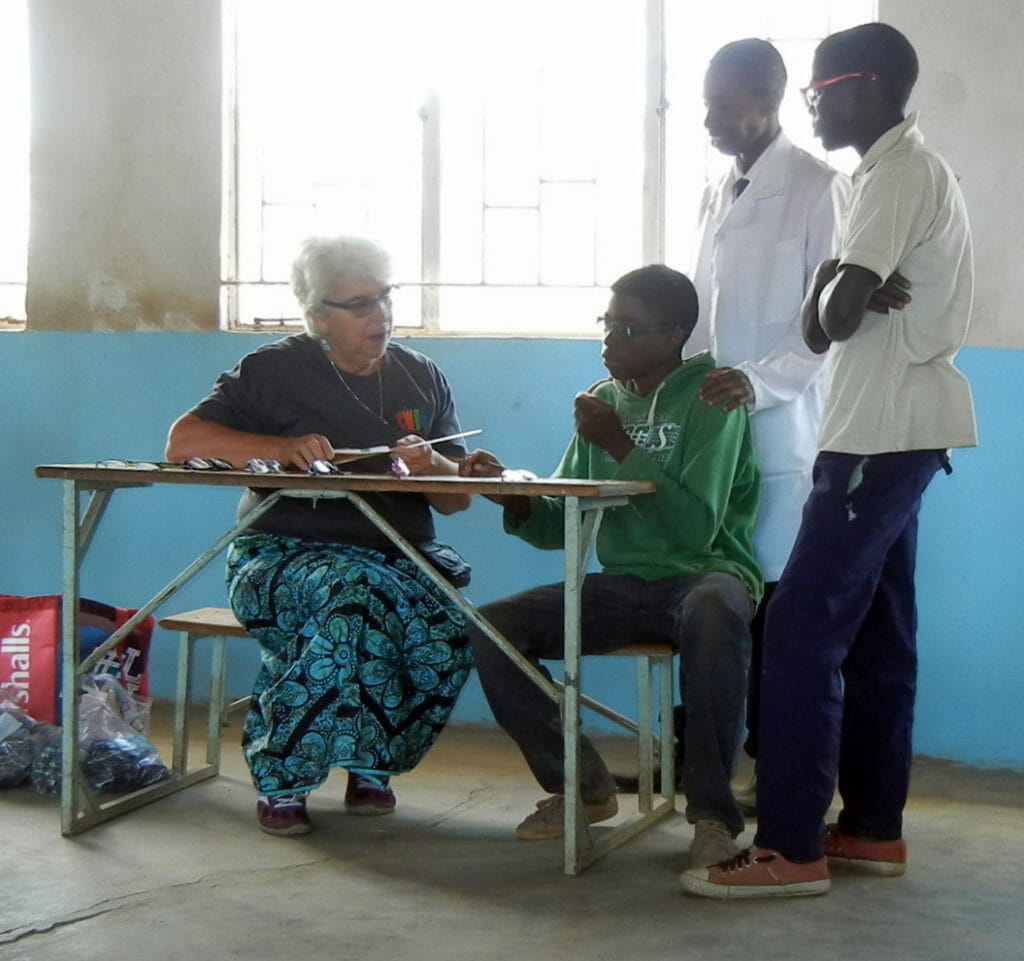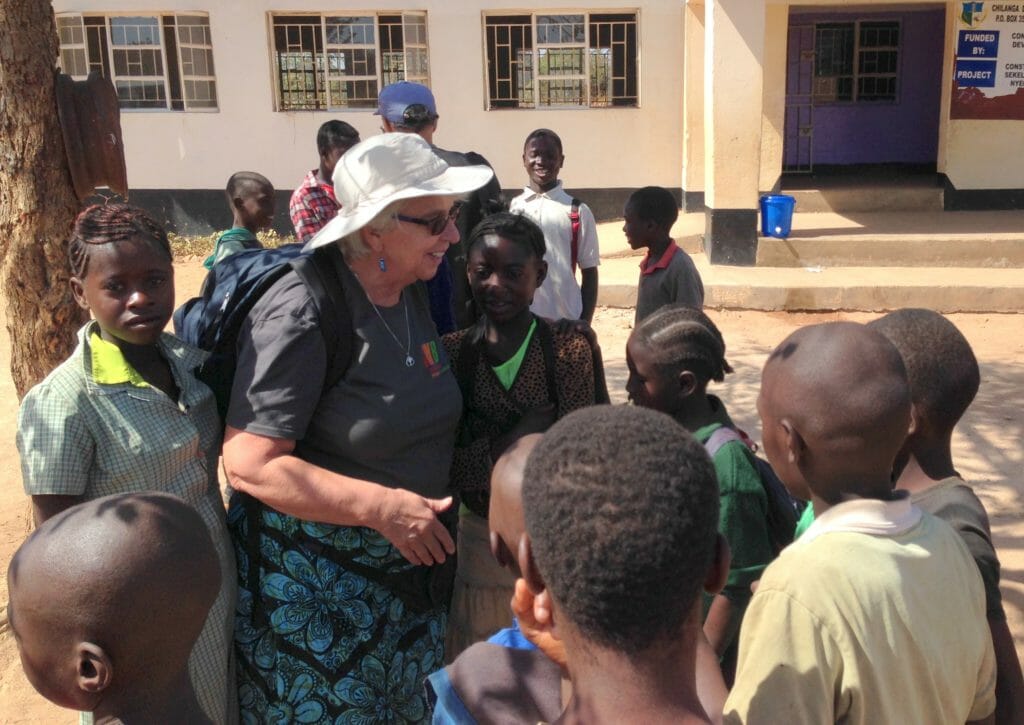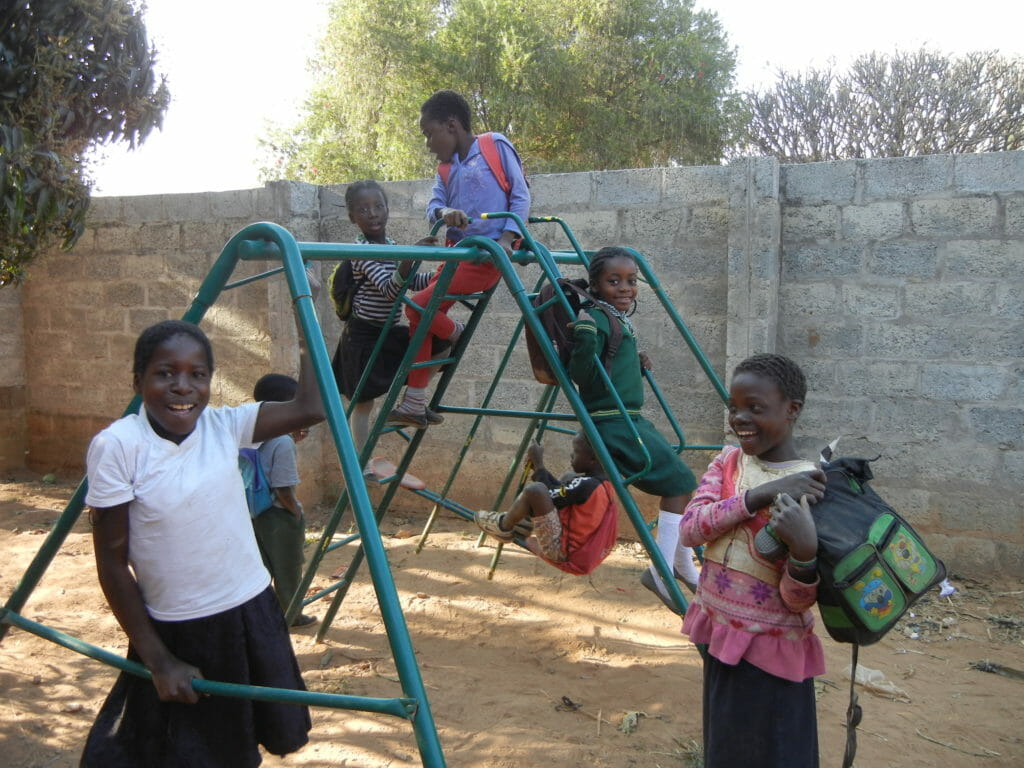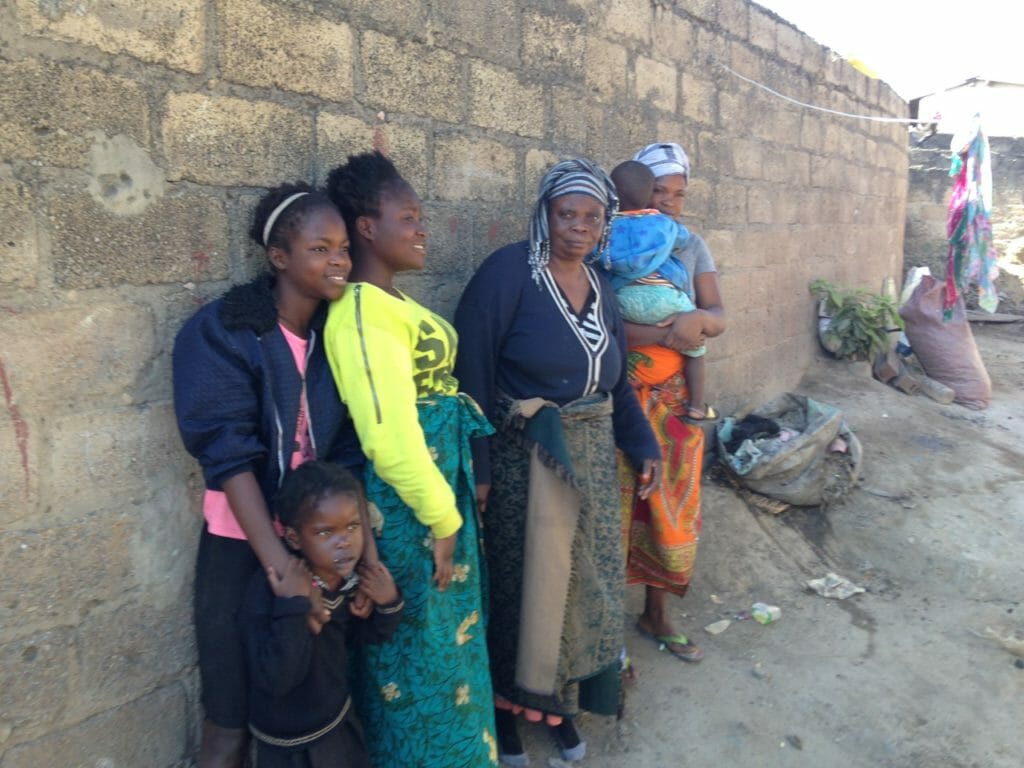
Chisala has been in Communities Without Borders Programs since preschool. Many CWB travelers have met her throughout those years. Toni Tasker, who went on the 2017 trip, was moved to write about meeting Chisala.
I was especially touched by a discussion Dick Bail and we had with one of the children supported by CWB, Chisala. I see her as a perfect example of the importance of the mission of CWB in Zambia in supporting the education of those who cannot afford it.
Chisala is smart, hard-working, self-confident, realistic, polite, funny, proud of her heritage, loyal to her family, and profoundly poor: a description that would cover most of the students we met in Zambia. An excellent student in school, Chisala wants to be a doctor. She knows it will take considerable hard work and luck to proceed through the education she will need to be a physician. At 17, she is somewhat cynical and worldly in her view of her chances, but she has to fight daily to rise above her life in the compound, and has earned the right to that scrappiness.
Dick asked her to show us her home in the Garden compound, which she did readily, and introduced us to her family: a grandmother, mother, and several siblings who had come to Lusaka a few years ago to find better work for her father, who has since died. She is proud of the larger home they now occupy, a cinder block structure about 500 square feet in size. The family is cooking and doing the wash outdoors when we meet them, and Chisala becomes the local celebrity as we take pictures of her and her family in this tightly-packed community.
Her grandmother talks to us in Bemba, their tribe’s language, which Chisala translates into excellent English. Her grandmother clearly is the family leader, responsible for teaching her family their cultural history and stories. Chisala tells us that her grandmother is the one who has taught her about ubuntu, the African philosophy of sharing, caring and willingly accepting responsibility to and for each other. This drives her desire to be a doctor. Chisala demonstrates it in the warmth and care she shows her aging grandmother and infant brother. She is a very lovely young woman.
I saw Chisala later in a Days for Girls class my friend, Meg, and I taught at the school. Days for Girls classes are concerned with education on women’s health, and bring brilliantly-designed reusable sanitary supplies to the girls to use each month. Many miss a week of school every month as disposable supplies are not affordable, making progress in school even harder. Chisala was engaged in the class: listening, answering questions and laughing at our jokes. She has a beautiful smile.
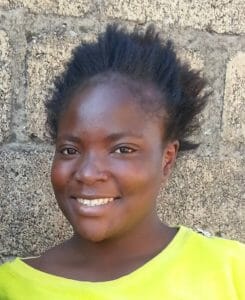 But without contacts at the university to help open doors, or the means to finance post-graduate education, Chisala’s chances to realize her dream are limited. Next year in the graduation ceremonies CWB leads at the schools it supports I hope that Chisala will tell Dick that she has succeeded, that she has found a way to the university. The world needs more young women like Chisala to be successful.
But without contacts at the university to help open doors, or the means to finance post-graduate education, Chisala’s chances to realize her dream are limited. Next year in the graduation ceremonies CWB leads at the schools it supports I hope that Chisala will tell Dick that she has succeeded, that she has found a way to the university. The world needs more young women like Chisala to be successful.
— Toni Tasker, 2017 CWB Traveler
Toni says: I’m a member of First Parish in Lexington, a retired physical therapist and educator. It was a gift to have met so many wonderful Zambians who are dedicated to improving the health and education of their country’s children—despite the hardships and struggles in doing so. And the kids just melted your heart!

